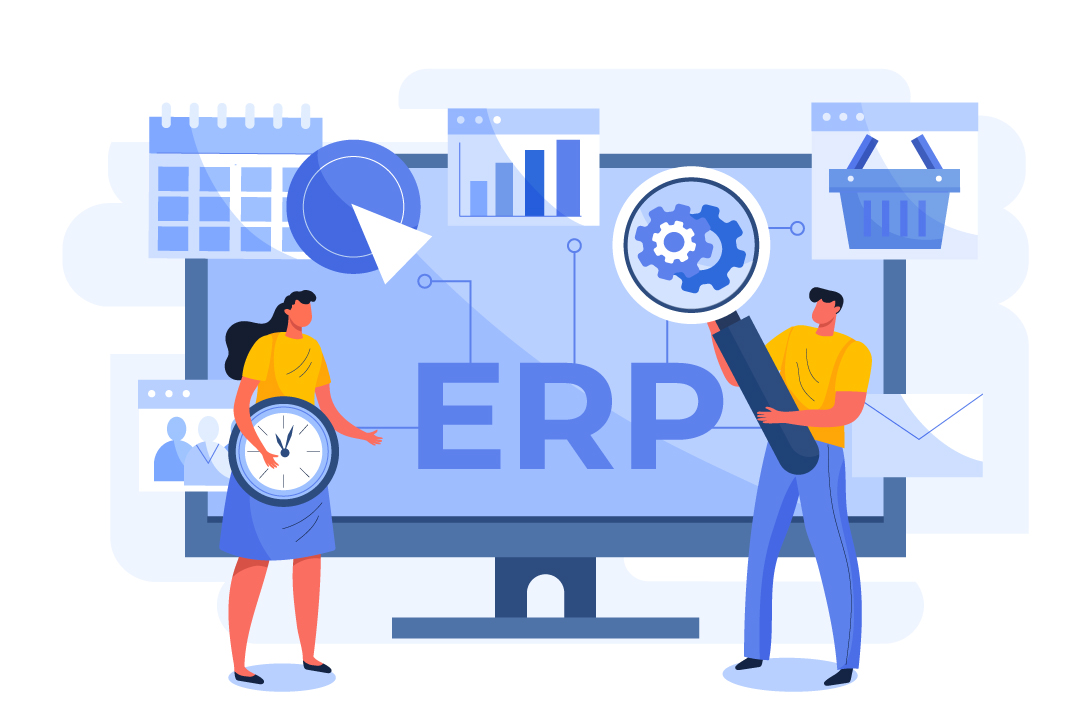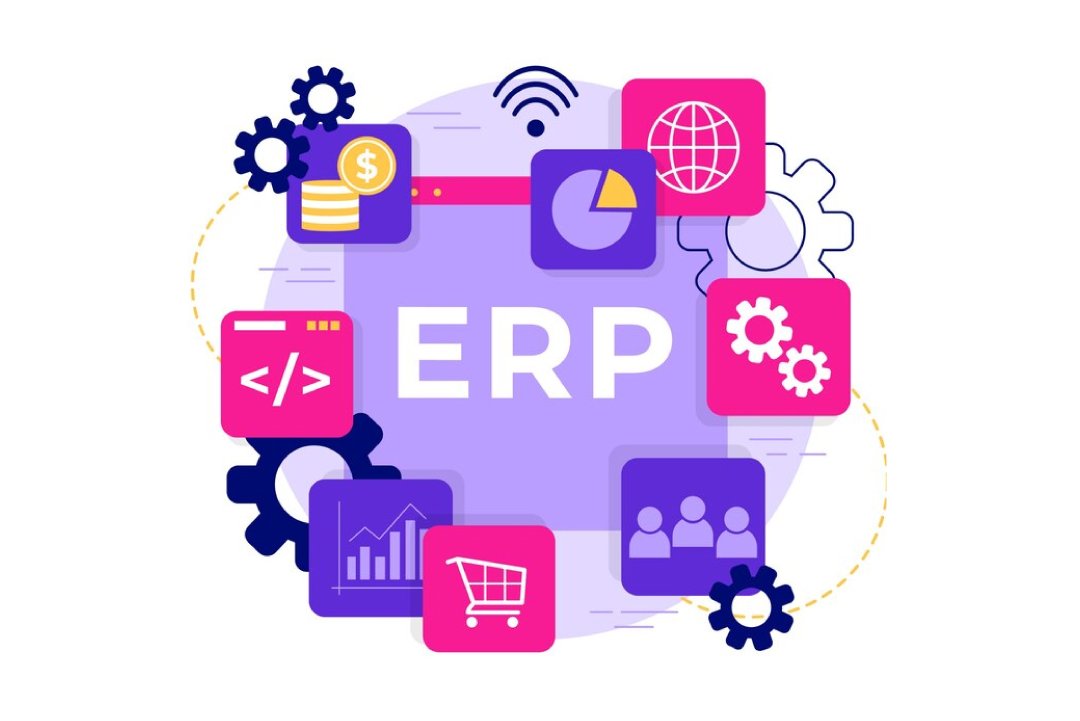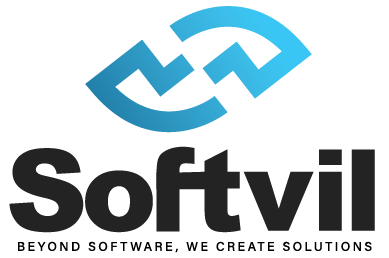In this article, the significance of ERP consultation and implementation services is explored, shedding light on their crucial role in integrating ERP systems within businesses. Beginning with an elucidation of ERP, its evolution, and fundamental components, the article delves into the critical function of ERP consultants, emphasizing their core responsibilities and requisite expertise in guiding clients through the implementation process.
Highlighted are the transformative benefits of ERP implementation services, ranging from enhanced organizational efficiency to improved cost-effectiveness and decision-making prowess. Furthermore, the article examines industry-specific applications of ERP solutions, demonstrating their versatility across sectors such as manufacturing, food & beverage, distribution, and life sciences.
Through the exploration of key considerations for successful ERP implementation, including strategic planning, meticulous system selection, and effective change management strategies, the article aims to provide businesses with the knowledge and tools necessary to leverage ERP implementation services effectively. Practical insights are employed to equip organizations with the means to maximize their operational potential and competitive advantage in today’s dynamic business landscape.
Understanding ERP

ERP, or Enterprise Resource Planning, constitutes a comprehensive suite of software solutions integrating core business processes, including finance, supply chain, and human resources. Its components typically encompass modules for various functions, providing a unified platform for data management and decision-making. The evolution of ERP systems traces back to the Material Requirements Planning (MRP) era of the 1960s, evolving into Manufacturing Resource Planning (MRP II) systems, and eventually embracing cloud-based solutions in the modern era. This evolution has expanded the utility of ERP, making it more adaptable, accessible, and scalable across diverse industries and organizational sizes.
In contemporary business operations, the importance of ERP cannot be overstated. ERP systems serve as a central hub for data integration and workflow management, enabling organizations to streamline processes, optimize resource allocation, and enhance operational efficiency. Moreover, ERP facilitates real-time insights and data-driven decision-making, fostering agility and competitiveness in today’s dynamic market landscape. Its role extends beyond mere software; ERP consultation plays a crucial part in guiding businesses through the complexities of implementation, customization, and optimization, ensuring that organizations harness the full potential of ERP solutions to meet their strategic objectives and drive sustainable growth.
The Role of ERP Consultants

Choosing an ERP consultant is a pivotal decision for businesses aiming at successful ERP implementation. The role of ERP consultants encompasses a variety of core responsibilities beginning with needs analysis. Consultants must conduct thorough assessments of the client’s business processes, objectives, and challenges to identify requirements and tailor ERP solutions effectively. System selection is another vital task, wherein consultants leverage their expertise to recommend suitable ERP platforms aligning with the client’s industry, size, and specific needs.
Needs Analysis
- Understanding Business Processes: ERP consultants conduct in-depth assessments of the client’s existing business processes, workflows, and operational challenges. They engage with stakeholders across departments to gain insights into the organization’s unique requirements and objectives.
- Identifying Requirements: Based on the findings from the analysis phase, ERP consultants document and prioritize the requirements that the new ERP system must fulfil. These requirements serve as the foundation for selecting and customizing the appropriate ERP solution.
- Stakeholder Engagement: Effective communication and collaboration with key stakeholders are essential throughout the needs analysis phase. ERP consultants facilitate workshops, interviews, and meetings to ensure alignment and consensus among stakeholders regarding project goals, scope, and expectations.
System Selection
- Market Research: ERP consultants leverage their industry knowledge and experience to research and evaluate available ERP systems in the market. They consider factors such as functionality, scalability, industry-specific features, vendor reputation, and cost.
- Vendor Assessment: Once potential ERP vendors are identified, consultants conduct a thorough assessment of each vendor’s capabilities, including product demonstrations, reference checks, and evaluations of support services and implementation methodologies.
- Recommendation: Based on the findings from the market research and vendor assessment, ERP consultants provide recommendations on the most suitable ERP solution that aligns with the client’s requirements, budget, and long-term business objectives. This recommendation may involve selecting a specific ERP software package or a combination of modules from different vendors to create a customized solution.
Implementation
- Project Planning: ERP consultants develop a comprehensive project plan that outlines the implementation strategy, timelines, resource requirements, and milestones. They collaborate with the client’s internal project team to ensure alignment and accountability.
- Installation and Configuration: Once the project plan is finalized, ERP consultants oversee the installation and configuration of the chosen ERP system. This may involve setting up hardware infrastructure, installing software modules, and configuring system settings to meet the client’s requirements.
- Data Migration: ERP consultants manage the migration of data from legacy systems to the new ERP platform. This process requires careful planning, validation, and testing to ensure data integrity and accuracy.
- Testing: ERP consultants conduct thorough testing of the ERP system to identify and resolve any issues or discrepancies before going live. This includes functional testing, performance testing, and user acceptance testing to validate that the system meets the client’s expectations and requirements.
Customization and Integration
- Tailoring the ERP Solution: ERP consultants work closely with the client to customize the ERP system to meet their specific needs and workflows. This may involve configuring system settings, creating custom reports, and developing new functionality or features.
- Integration with Existing Systems: ERP consultants ensure seamless integration of the ERP system with existing software applications, databases, and third-party systems. This integration enables data exchange and workflow automation across the organization, streamlining business processes and improving efficiency.
- Workflow Optimization: Through customization and integration, ERP consultants help optimize the client’s business processes to maximize productivity, minimize manual effort, and improve decision-making. This may involve redesigning workflows, automating repetitive tasks, and implementing best practices to achieve operational excellence.
Training and Support
- End-user Training: ERP consultants provide comprehensive training to the client’s workforce to ensure they have the knowledge and skills required to effectively use the new ERP system. Training sessions may cover system navigation, data entry, report generation, and troubleshooting.
- Ongoing Support: ERP consultants offer continuous support and assistance to address any issues or challenges that arise during the post-implementation phase. This includes troubleshooting technical issues, providing software updates and patches, and answering user inquiries.
- Knowledge Transfer: ERP consultants facilitate knowledge transfer sessions to empower the client’s internal teams to maintain and optimize the ERP system independently. This may involve documenting system configurations, developing training materials, and providing guidance on system administration and maintenance tasks.
Benefits of ERP Consultation
ERP consultation offers a plethora of benefits to businesses, driving efficiency, cost-effectiveness, and informed decision-making.

Efficiency and Productivity Improvements
Through ERP consultation, businesses can streamline their operations by automating repetitive tasks, eliminating manual processes, and optimizing workflows. This results in increased efficiency, reduced turnaround times, and enhanced productivity across the organization.
Cost Savings and ROI
ERP consultation helps businesses identify cost-saving opportunities by eliminating redundancies, reducing waste, and optimizing resource allocation. By implementing efficient processes and systems, businesses can achieve a higher return on investment (ROI) and lower total cost of ownership (TCO) over time.
Streamlined Business Processes
ERP consultation enables businesses to standardize and centralize their business processes, facilitating seamless communication and collaboration across departments and locations. This leads to improved coordination, faster decision-making, and better alignment with organizational goals.
Enhanced Decision-Making Capabilities
With access to real-time data and comprehensive reporting tools, ERP consultation empowers businesses to make informed decisions based on accurate information. By having a clear understanding of their operations, performance, and market trends, businesses can adapt quickly to changing conditions and capitalize on new opportunities.
Overall, ERP consultation plays a crucial role in helping businesses achieve their strategic objectives, drive growth, and stay competitive in today’s dynamic business environment. By leveraging the benefits of ERP consultation, businesses can optimize their processes, maximize their resources, and position themselves for long-term success.
Industry Uses of ERP Solutions
ERP solutions have become indispensable tools across various industries, revolutionizing the way businesses manage their operations, streamline processes, and drive growth.

Overview of ERP Applications in Various Industries
ERP software caters to diverse industries, providing comprehensive solutions to manage core business functions seamlessly. Industries ranging from manufacturing to healthcare leverage ERP systems to enhance efficiency, productivity, and competitiveness.
Examples of Industry-Specific ERP Solutions
Manufacturing & Engineering: ERP solutions for manufacturing and engineering sectors focus on optimizing production processes, managing supply chains, and enhancing quality control. These systems integrate functions such as inventory management, production planning, and equipment maintenance to streamline operations and maximize output.
Food & Beverage: In the food and beverage industry, ERP solutions assist in managing complex supply chains, ensuring compliance with regulatory standards, and maintaining product quality. These systems include features for recipe management, batch tracking, and compliance reporting to support efficient production and distribution processes.
Distribution & Wholesale: ERP solutions for distribution and wholesale industries optimize inventory management, order processing, and logistics operations. These systems enable businesses to track inventory levels, manage orders, and streamline distribution channels for improved customer service and cost-effectiveness.
Life Sciences: ERP solutions tailored for the life sciences sector address unique regulatory requirements, research and development processes, and production operations. These systems support compliance with strict industry standards, manage complex supply chains, and facilitate product lifecycle management to ensure safety, quality, and efficiency.
In essence, ERP business solutions are versatile tools that cater to the specific needs and challenges of different industries, empowering businesses to achieve operational excellence and drive sustainable growth.
Choosing the Right ERP Consultant
Choosing an ERP consultant is a critical decision that can significantly impact the success of an ERP implementation project. Several key factors should be considered when selecting an ERP consultant:

Factors to Consider
- Industry Experience: Look for consultants with experience in your industry, as they will have a better understanding of your specific needs and challenges.
- Technical Expertise: Evaluate the consultant’s technical proficiency with ERP systems, including knowledge of different platforms and their capabilities.
- Project Management Skills: Consider the consultant’s ability to effectively manage ERP implementation projects, including planning, resource allocation, and risk management.
- Communication and Collaboration: Choose a consultant who communicates clearly, listens to your requirements, and collaborates effectively with your team throughout the project.
- References and Reputation: Check the consultant’s references and reputation in the industry to ensure they have a track record of successful ERP implementations.
Questions to Ask Potential Consultants
- Can you provide examples of ERP projects you have successfully completed in our industry?
- What is your approach to ERP implementation, and how do you ensure project success?
- How do you handle challenges and mitigate risks during ERP implementation projects?
- What level of support and training do you provide to end-users during and after the implementation?
- How do you ensure alignment between the ERP solution and our business objectives and requirements?
Evaluating Expertise and Experience
- Review Case Studies: Ask for case studies or examples of past ERP projects to assess the consultant’s expertise and experience in implementing similar solutions.
- Conduct Interviews: Interview potential consultants to gauge their knowledge, approach, and suitability for your project.
- Check References: Speak to past clients to get feedback on the consultant’s performance, professionalism, and ability to deliver results.
- Evaluate Certifications: Consider consultants with relevant certifications and accreditations in ERP systems and project management.
By considering these factors, asking the right questions, and thoroughly evaluating expertise and experience, businesses can choose the right ERP consultant who aligns with their needs and ensures a successful ERP implementation.
Conclusion
In conclusion, ERP consultation stands as a vital element in the successful implementation of ERP systems across diverse industries. Through this article, we’ve demystified the complexities surrounding ERP consultation, outlining its core responsibilities, benefits, and industry-specific applications. From needs analysis to training and support, ERP consultants play a pivotal role in guiding businesses through every stage of the implementation journey, ensuring seamless integration and optimal utilization of ERP solutions. By understanding the significance of ERP consultation and carefully selecting consultants based on factors such as industry experience, technical expertise, and project management skills, businesses can leverage ERP systems to streamline operations, enhance decision-making, and drive sustainable growth. With the right ERP consultant by their side, organizations can navigate the complexities of ERP implementation with confidence, unlocking the full potential of these transformative solutions to achieve their strategic objectives and maintain a competitive edge in today’s dynamic business landscape.
FAQs
ERP consultation involves guiding businesses through the process of selecting, implementing, and optimizing Enterprise Resource Planning (ERP) systems to improve efficiency and streamline operations.
ERP consultation ensures that businesses choose the right ERP system, tailor it to their specific needs, and successfully implement it to maximize its benefits and ROI.
An ERP consultant analyzes business processes, helps select the appropriate ERP software, oversees implementation, customizes the system, provides training, and offers ongoing support.
Choose an ERP consultant with industry experience, technical expertise, strong project management skills, and a track record of successful ERP implementations.
ERP consultation leads to efficiency improvements, cost savings, streamlined processes, enhanced decision-making capabilities, and overall business growth.
About Softvil
SoftVil is a leading provider of ERP solutions, renowned for its expertise in guiding businesses through the intricate world of Enterprise Resource Planning (ERP). With a proven track record of delivering tailored ERP solutions across diverse industries, SoftVil stands at the forefront of digital transformation, empowering organizations to streamline their operations, enhance efficiency, and drive growth. Backed by a team of seasoned ERP consultants and technical experts, SoftVil offers comprehensive services, from needs analysis to implementation, customization, and ongoing support. By leveraging cutting-edge technology and industry best practices, SoftVil helps businesses unlock the full potential of ERP systems, enabling them to make informed decisions, adapt to changing market dynamics, and stay ahead of the competition. With SoftVil as a trusted partner, businesses can embark on their ERP journey with confidence, knowing they have a dedicated team committed to their success.

